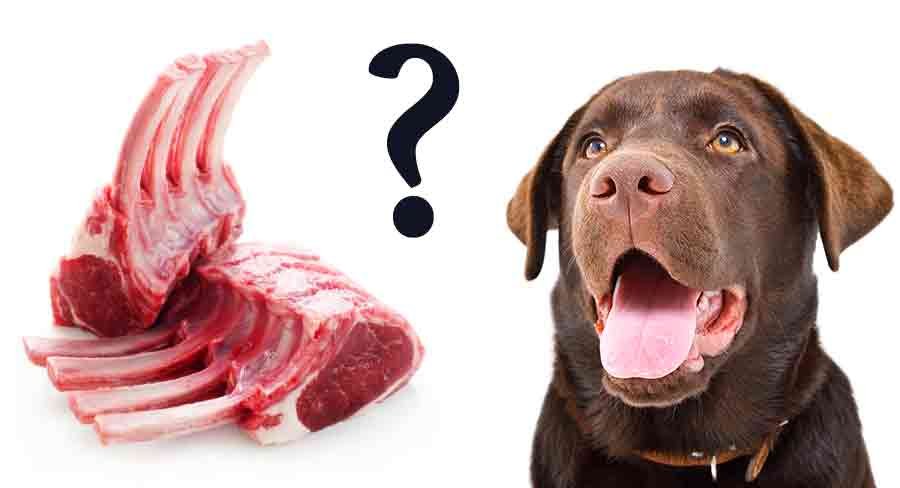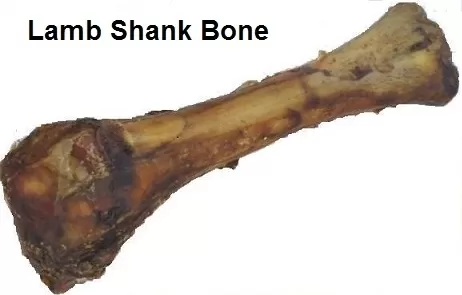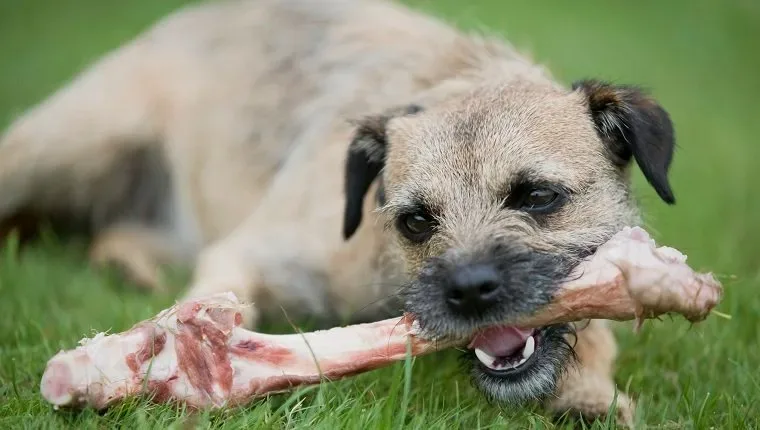Can Dogs Eat Lamb Bones or Mutton Bones? Dogs have been known to eat bones from different meats, but lamb and mutton bones are two that come up more often than not. While it is not recommended that your dog consume these bones, they are generally safe to give to them if they are consumed in small amounts.
Table of Contents
Some dogs may only need a small amount of bone per day while others may need more, so be sure to monitor your dog’s behavior and adjust their feeding accordingly.
Chewables and Edibles
First of all, you should be aware that there are two different kinds of dog bones: chewable and edibles. They are also referred to as both edible and recreational by some. Whatever the case, edibles are the only kind that genuinely gives your pet nutrition. Ones like turkey or chicken.
Dogs cannot, however, get these in their raw form. They are too little and delicate. Rather, mash them up and add them to their diet. They receive extra vitamins and minerals from it.
Also Read: Why Is My German Shepherd Sitting On My Lap?
Recreational or chewable bones are not intended to be consumed on their whole. They are for your pet’s benefit and for enjoyment when chewing. These should only be huge hips or legs bones, such as those from cattle, ham, or lamb.
Not cooked; raw

Any bones you offer your dog should be raw. I am aware that many pet owners give their dog cooked ham or roast bones, but this is not a good idea. Cooked bones lose a lot of their structure and become softer. Because of this, they splinter and break readily, and the resulting fragments lodge in your dog’s esophagus and digestive system.
Can Dogs Eat Lamb Bones? Comparison of lamb and mutton bones
| Aspect | Lamb Bones | Mutton Bones |
|---|---|---|
| Source | Young sheep (less than 1 year old) | Adult sheep (older than 1 year) |
| Texture | Generally softer and less dense | Typically harder and denser |
| Size | Smaller in size compared to mutton bones | Larger and more substantial |
| Tenderness | More tender due to youth | Less tender, can be quite tough |
| Nutritional Content | Higher protein content, leaner | Higher fat content, potentially more flavorful |
| Bone Structure | Thinner bones that can splinter easily | Thicker bones that may also splinter |
| Risk to Dogs | Can splinter and cause choking, injury | Can splinter and pose similar risks |
| Feeding Caution | Not recommended for dogs due to risks | Not recommended for dogs due to risks |
| Preparation | Cooking may soften bones, but risks remain | Cooking may slightly soften, still risky |
To some, lamb bones are a delicacy while to others they are nothing more than a nuisance. In fact, many dog owners believe that mutton bones are better for their canine companions because of the different types of nutrients that they offer. The chart below compares the two types of bones in terms of both nutrient and caloric content.
Lamb’s bones contain more calcium and vitamin D compared to mutton bones. Additionally, lamb is a richer source of protein than mutton, boasting about 25% more than beef. However, when it comes to calories, lamb bones have fewer than mutton. This is likely due to the lower fat content in lamb meat.
Since both lamb and mutton offer important nutrients for dogs, it is up to the individual pet owner to decide which type of bone their dog prefers.
Pros and Cons of eating lamb or mutton bones

Pros
- Eating lamb or mutton bones can provide your dog with essential nutrients and minerals, such as phosphorus, magnesium, potassium, and calcium.
- However, eating lamb or mutton bones can also be dangerous if your dog is not properly supervised. If your dog manages to chew through the bone and get any of the meat inside their mouth, they could end up with serious health problems.
- Additionally, some owners believe that eating lamb or mutton bones can cause bad breath in their dogs. So it’s important to be aware of potential side effects before giving them a bone to chew on!
- Ultimately, choosing whether or not to give your dog a lamb or mutton bone is a personal decision that you’ll have to weigh against the potential risks and benefits.
Cons
If you’re considering Feeding lamb or mutton bones, here are a few things to keep in mind:
- Bones can be a choking hazard for dogs. If your dog is inclined to chew on bones, be sure to supervise them while they’re eating them.
- Lamb and mutton bones are high in calcium and other minerals, but they also contain substances that can irritate the stomach and intestines if consumed in large quantities.
- People with Crohn’s disease or other autoimmune problems should avoid lamb and mutton bones because of their potential inflammatory properties.
- Some people believe that lamb and mutton bone consumption can help improve joint health. However, there is no scientific evidence to support this claim at this time.
Can Dogs Eat Lamb Bones| Tips and Advice
| Tips | Advice |
|---|---|
| Do not give your dog cooked lamb bones. | Cooked bones can splinter and cause severe internal damage to your dog, such as choking, intestinal blockages, and lacerations to the mouth, throat, or intestines. |
| Only give your dog raw lamb bones that are large enough not to be swallowed whole. | Raw bones are softer than cooked bones and are less likely to splinter. However, it is still important to supervise your dog when they are chewing on bones to make sure they do not swallow any small pieces. |
| Avoid giving your dog lamb bones that are small, thin, or have sharp edges. | These bones are more likely to splinter and cause internal injuries. |
| Do not give your dog lamb bones that have been heavily processed or smoked. | These bones are more likely to splinter and be harmful to your dog. |
| If your dog swallows a lamb bone, contact your veterinarian immediately. | Even if the bone does not cause any immediate problems, it is important to have your dog checked by a veterinarian to rule out any potential complications. |
Don’t ever leave your dog with a bone unsupervised. They are just as quick and simple to choke as we are. Constipation, choking, surgery, and even death may result from this.
A fantastic option for dog bones is lamb, as well as beef or ham. That’s accurate. Dogs can eat ham bones, that much is no longer in doubt. The approved list now includes it alongside beef and lamb. They are substantial, weighty, and difficult to break. Just be careful to remove them once the bones are small enough to swallow.
Can Dogs Eat Lamb Bones? Avoid giving bones to your dog if they frequently experience diarrhea, gastrointestinal problems, or irritable bowel syndrome. Any of these issues are brought on by the marrow inside, which is known to be incredibly rich. Simply steer clear of it and instead think about alternatives like rawhide chews, NylaBone, or rawhide bones.
There you have it. Dogs are able to consume lamb bones. Yes! Among many other things, they can. All you need to know is when and how to offer it to them. Just keep in mind that the ideal bones are large, raw, and firm. You should grind and combine them with food if they are little and soft.
FAQs
Can Dogs Eat Lamb Bones? Is it safe for dogs to consume cooked lamb bones?
No, it’s not safe for dogs to eat cooked lamb bones. When bones are cooked, they become more brittle and can break into sharp pieces, which might harm your dog’s digestive system. These sharp pieces can cause choking, blockages, or even damage the intestines. It’s better to avoid giving your dog cooked bones and opt for safer treats like chew toys specifically designed for dogs.
Which types of bones are suitable for dogs to eat?
When it comes to bones, larger raw bones from beef or pork are generally safer options for dogs. They are less likely to splinter or break into small, sharp pieces. However, even with larger bones, supervision is important to ensure your dog chews them safely. Remember, bones are treats, and it’s crucial to avoid bones that are too small, as they can pose a choking hazard.
What’s the reason behind dogs eating lamb bones?
Dogs naturally have a strong chewing instinct, and lamb bones might appeal to this urge. Chewing can be enjoyable and even help keep their teeth clean. However, it’s important to be cautious. Raw lamb bones are generally safer than cooked ones, as they are less likely to splinter. Always supervise your dog while they’re enjoying bones, and if you’re unsure, consult your veterinarian.
Is it advisable for my dog to consume raw lamb rib bones?
Feeding your dog raw lamb rib bones can be less risky than cooked bones, but it still requires careful monitoring. Raw bones are more flexible and less likely to splinter than cooked bones. However, there’s always a possibility of choking or other issues, so never leave your dog unattended while they’re chewing on bones. If your dog tends to swallow large pieces or shows any discomfort, it’s wise to consult your vet.
Do dogs have the ability to digest bones?
Dogs have natural digestive enzymes and stomach acids that can help break down raw bones. However, not all bones are suitable for consumption. Small, sharp, or cooked bones can pose dangers. If you’re considering giving your dog bones, opt for larger, raw bones that are appropriate for your dog’s size and breed. If your dog shows signs of discomfort, vomiting, or trouble passing stools after consuming bones, seek immediate veterinary assistance.
Wrapping Up
In conclusion, it is not recommended to feed dogs lamb bones or mutton bones. While dogs have a natural instinct to chew on bones, these specific types of bones can pose serious risks to their health. The bones can splinter easily, leading to potential choking hazards, internal injuries, or even obstructions in the digestive tract.
Additionally, the bones may cause dental problems or damage the delicate tissues of the digestive system. Instead of offering lamb or mutton bones, it’s safer to provide your dog with appropriate alternatives like specially designed dog chews or toys. Prioritizing your furry friend’s safety and well-being is crucial, so remember: when it comes to “Can Dogs Eat Lamb Bones,” the answer is better left as a resounding “No.”

